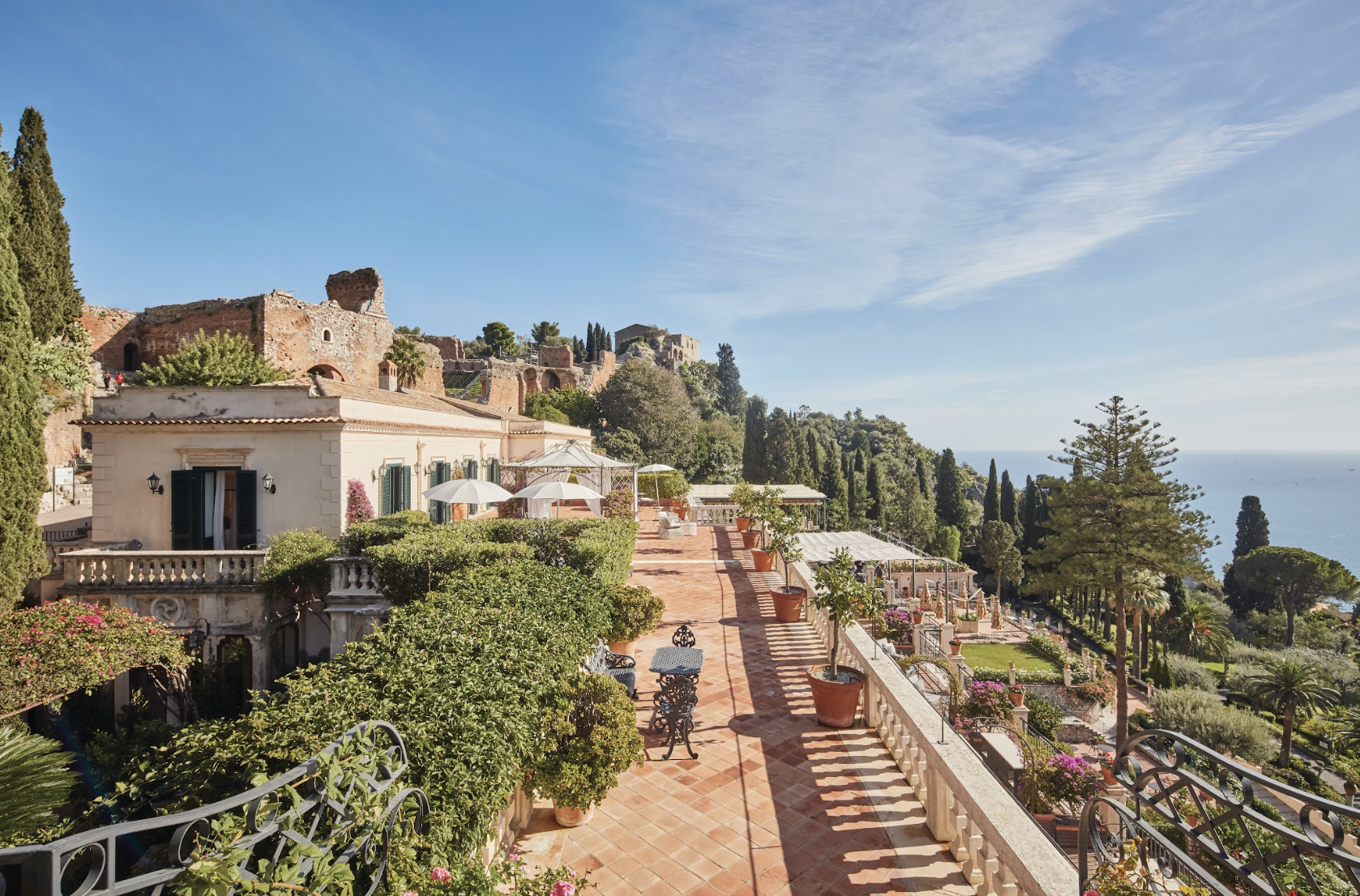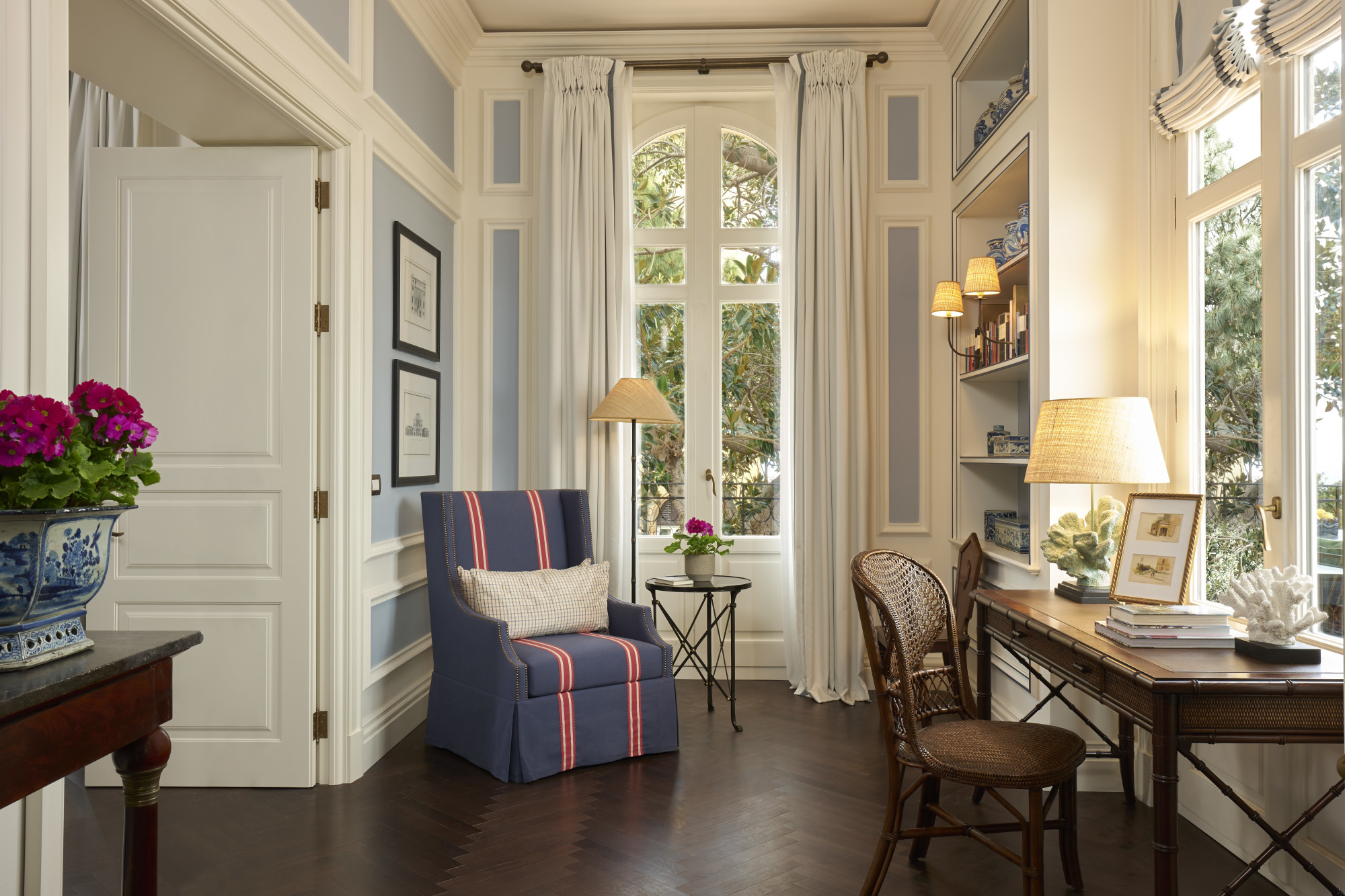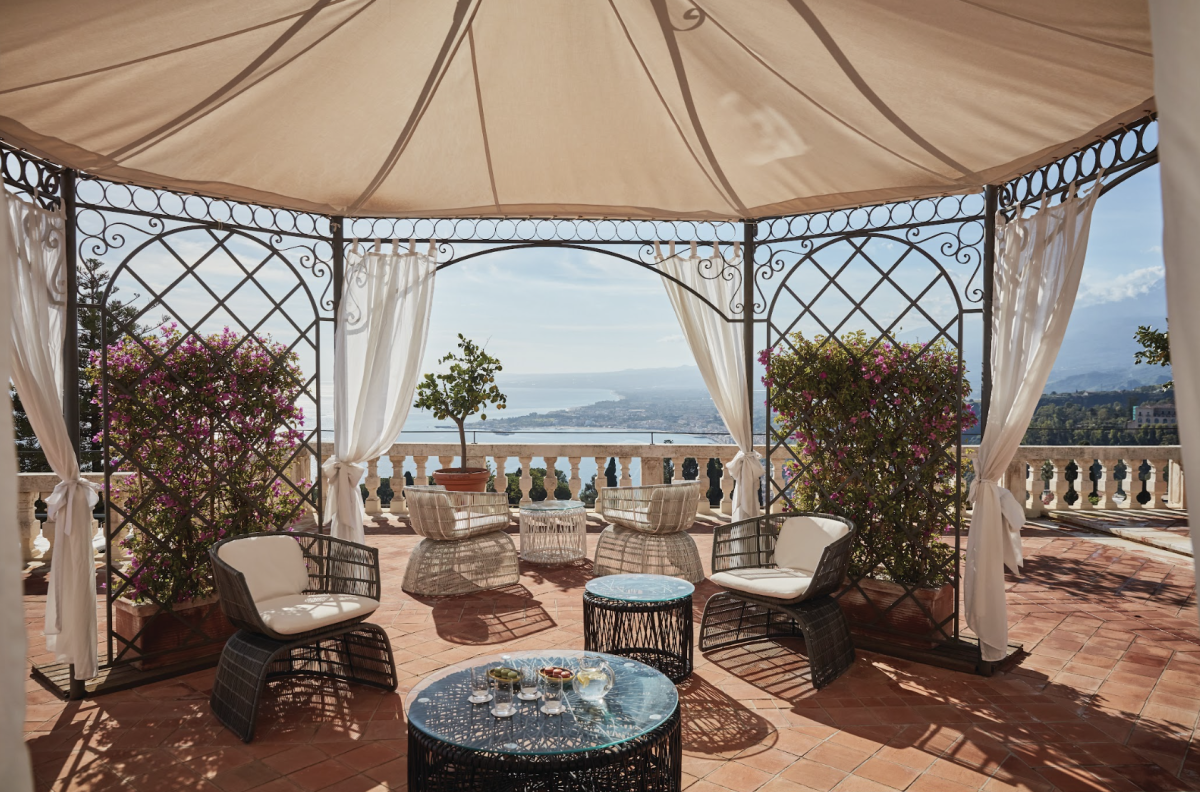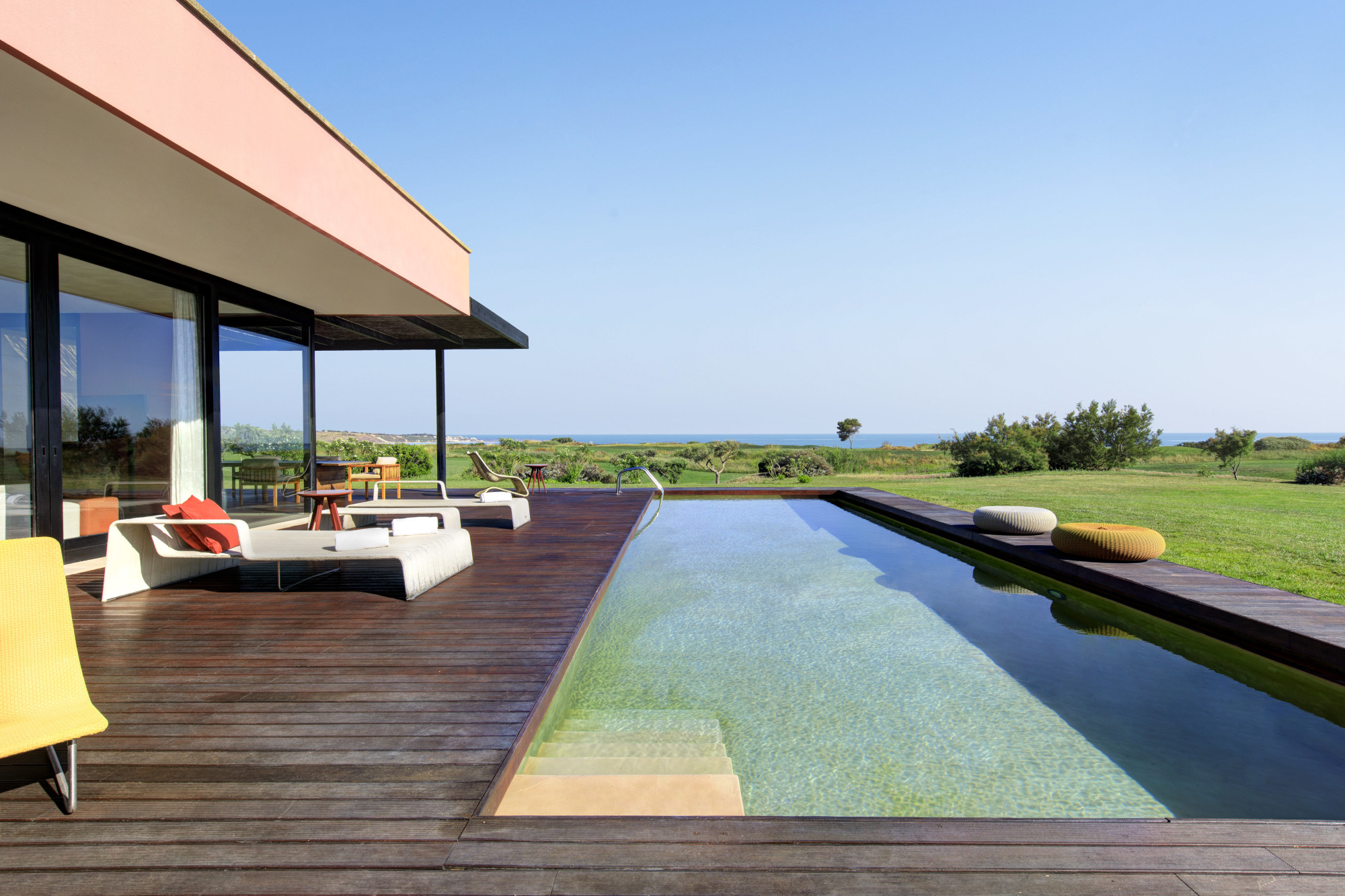
Image courtesy of Grand Hotel Timeo, A Belmond Hotel
Sicily is perennially popular for a reason. Idyllic beaches and rugged volcanic landscapes dot the Mediterranean island. It’s home to ancient temples and Mount Etna, charming seaside villages and wineries. Explore its varied architecture enriched by multiple cultures over the years. Sample fresh seafood and nutritiously dense local produce, grown in the island’s mineral-rich volcanic soil. You can lounge by the beach, hike up a volcano, see ancient ruins — options abound.
Below is just a sampling of what Sicily, the Mediterranean’s largest island, has to offer. When you connect with me, I’ll work with you to curate an itinerary catered to your unique interests, travel style, preferences and budget.
Need to know:
Currency: €, Euro (EUR)
Language: Italian
Airport: Palermo Falcone-Borsellino Airport (PMO), Trapani Vincenzo Florio Airport (TPS) and Catania Vincenzo Bellini Airport (CTA)
Transportation: Renting a car is best, as public transportation isn’t always reliable.
Best time to visit: Sicily’s low season is between October and April. The weather is a bit chillier during this time of year and will make the island’s outdoor activities a bit more uncomfortable. High season runs from June to mid-September, and although the weather is gorgeous, expect large crowds, especially in resort towns like Taormina.
Ideal length of stay: At least seven to 10 days — there’s so much to see and do! This length will allow you to see much of the island while allowing ample time for relaxation.
Signature dishes: arancini (deep-fried cheese-and-rice balls), sfinciuni (flatbread pizza), cassata (sponge cake soaked in Marsala wine and layered with ricotta), caponata (a medley of eggplant and other vegetables, seasoned with olives and capers), cannoli (ricotta-filled fried pastry dough)
Key phrases: ciao (informal hello), salve (formal hello), per favore (please), grazie (thank you), come va (how’s it going), mi scusi (excuse me), salute (cheers), cin cin (cheers, a bit more informal)
Dress code: Wear your breeziest, chicest ensemble for traversing from town to beach on repeat.
Northern Sicily: Palermo & Vulcano
Sicily’s northern coast, bordering the sparkling Tyrrhenian Sea, is home to Palermo, the island’s capital. Palermo was originally founded by the ancient Phoeneicians, and subsequently changed hands among the Carthaginians, Romans, Arabs, Normans and other cultures throughout the years. These varied cultural influences are still evident today, especially in the city’s architecture and markets. Vulcano, part of the Tyrrhenian’s Aeolian Islands, is just off Sicily's northwestern coast. True to its name, the island consists of four active volcanoes.

Image courtesy of Villa Igiea, a Rocco Forte Hotel
Where to stay in northern Sicily
Villa Igiea, a Rocco Forte Hotel: A beautifully restored 19th-century palazzo with vibrant decor and expansive gardens. And since Fora is part of the Rocco Forte Knights partner program, when you book with me, you’ll unlock $100 resort credit, breakfast daily, an upgrade, extended check-in/out and additional exclusive offers.
Therasia Resort: A 60-room contemporary island getaway. Fora’s VIP partner perks include $50 hotel credit, breakfast daily, an upgrade and extended check-in/out.
What to do in northern Sicily
Palermo’s numerous markets are reminiscent of Middle Eastern souks. Explore the bustling areas brimming with fresh seafood, vegetables, fruits and traditional street food. Capo, Ballarò and Vucciria are the most well-known markets. Also check out the flea market in Piazza Marina, a central square lined with elegant palazzi. In the piazza you’ll also find the lovely Giardino Garibaldi, home to Palermo’s oldest tree.
Architecture enthusiasts will delight in both the Cattedrale di Palermo as well as the Cattedrale di Monreale, a beautiful church displaying Arab, Byzantine, Norman and Italian influences. The 12th-century Palazzo dei Normanni, the Royal Palace of Palermo, is also not to be missed, nor is the stunning Teatro Massimo, Italy’s largest theater. The theater still puts on operas, concerts, ballets and other events. And art-lovers should head straight to the sleek, multimedia modern art space ZACentrale.
Go to Vulcano for a mini wellness getaway. Walk or hike among its hilly volcanic landscape (the islet Volanello is especially conducive to a walking tour) before soothing your muscles with the island’s mineral-rich mud, or a soak in its thermal waters.
Where to eat in northern Sicily
Locals flock to Trattoria Altri Tempi for rustic, homemade classics in a casual, bustling space. Osteria Alivàru meticulously sources the best seasonal ingredients for its masterfully prepared antipasti, primi, secondi and dolci. The owner got into the food industry at age eight, working at his family’s olive stand at the Ballarò market. Savor Michelin-Starred fare at the rustic-chic Gagini, and fried fish at the no-frills seafood shack Al Tentacolo.
On Vulcano — or, Vulanello, to be exact — the dining at Therasia Resort is excellent: Il Cappero and the vegetarian I Tenerumi each boast a Michelin Star and a sustainable focus. Both are breezy, al-fresco, laid-back and utterly delicious. Still, Therasia also has plenty of more casual (but no less incredible) options — from the traditional Archipelago to the Mediterranean I Grusoni — plus two bars overlooking the sea.
Eastern Sicily: Syracuse, Taormina & Noto
Sicily’s eastern coast overlooks the Ionian Sea, just under the toe of Italy’s boot. The ancient Corinthians originally established Syracuse, which became the main Greek city on the island. The ever-popular Taormina, especially after season two of The White Lotus, sits near the base of Mount Etna, and is itself perched atop a hill overlooking the sea. Noto is a Baroque icon and UNESCO World Heritage Site; it’s a great day trip from both Syracuse and Taormina.

Image courtesy of Grand Hotel Timeo, A Belmond Hotel
Where to stay in eastern Sicily
Grand Hotel Timeo, A Belmond Hotel: A classic, effortlessly chic Sicilian icon. Fora’s Belmond Bellini Club partner perks include welcome amenities, breakfast daily and an upgrade.
Villa Sant’Andrea, A Belmond Hotel: A beachfront escape awash with tropical gardens. Fora’s Belmond Bellini Club partner perks include welcome amenities, breakfast daily and an upgrade.
Country House Villadorata: A 23-acre country estate in Noto with lush grounds and a sustainably minded ethos. Fora Perks include €20 hotel credit, welcome amenities and an upgrade.
Zahir Country House: A charming, farmhouse-chic retreat near Noto. Fora’s partner perks include €20 hotel credit, a welcome amenity, an upgrade and late check-out.
San Domenico Palace, Taormina, A Four Seasons Hotel: An elegantly restored 14th-century convent. When you book Four Seasons with me, you’ll enjoy exclusive Four Seasons Preferred Partner benefits.
What to do in eastern Sicily
Wander amongst the palazzi, shops, food markets and ruins of the Temple of Apollo on Ortigia, a tiny island that abuts Syracuse. In Syracuse proper, don’t miss the Neapolis Archaeological Park, where you’ll find several ancient Greek and Roman ruins. A few highlights include the 16,000-seat Greek Theater (Teatro Greco); the Ear of Dionysius, a limestone cave believed to be carved out of a quarry; and the Altar of Hiero II, a grand monument built in honor of Zeus Eleutherios (Zeus the Liberator).
Explore Taormina via ape Calessino, a quintessentially Italian three-wheeler. Taormina also boasts its own Greek theater, second in size only to the one found in Syracuse (at least in Sicily). No trip to Sicily would be complete without visiting Mount Etna. Trek along its rugged, ever-changing landscapes dotted with geothermal wonders. If you’re looking for something more laid-back, consider a visit to a nearby winery.
In Noto, marvel at the town’s Baroque architecture, epitomized in the grand local cathedral. Tour the beautiful 18th-century Palazzo Castelluccio, which once belonged to some of the town’s most notable aristocrats. For a modern-art moment, head to the chic studio of contemporary artist Sergio Fiorentino, an intimate experience that can be arranged by Belmond’s Villa Sant’Andrea hotel.
Where to eat in eastern Sicily
Grab a cocktail at the vibrant, whimsical Morgana. Caffè Sicilia is a must for homemade pastries and gelato in Noto. For super-casual, super-delicious Italian food, locals love Malvasia and Trattoria da Ugo, both in Taormina.
In Brucoli, near Syracuse, try the casual seaside taverna I Rizzari. A little further inland, at the base of Mount Etna, stop by the winery Tenuta delle Terre Nere, which also produces its own extra virgin olive oil and honey.
Western Sicily: Sciacca & Agrigento
Sicily’s western coast — or, because this island is basically a big triangle, southwestern coast — is also dotted with charming towns, stunning beaches and lots of ruins. It borders the Strait of Sicily, a stretch of water that separates the Mediterranean gem from Tunisia. There are numerous towns to explore here, but Sciacca and Agrigento are two favorites.

Image courtesy of Verdura Resort, A Rocco Forte Hotel
Where to stay in western Sicily
Verdura Resort, A Rocco Forte Hotel: A sprawling coastal resort with a splendid spa, numerous fine restaurants and a slate of immersive experiential offerings. Fora’s Rocco Forte Knights partner perks include $100 resort credit, breakfast daily, an upgrade, extended check-in/out and additional exclusive offers.
Villa Athena Resort: Charming boutique luxury within Agrigento’s archeological park. Fora’s SLH withIN partner perks include $50 hotel credit, an upgrade and extended check-in/out.
What to do in western Sicily
Agrigento is famous for its wealth of ruins, and its archaeological marvel, the Valley of Temples (a UNESCO World Heritage Site). The ancient ruins — especially its famed Doric temples — are exceptionally well-preserved.
Sciacca’s sulphuric hot springs have historically allured those looking for a holistic reset. Peruse the seaside town’s narrow streets and colorful fisherman’s homes. Visit the ornate, 14th-century Chiesa di Santa Margherita, a glimmering remnant of the Renaissance. The town is also known for its pre-Lenten Carnival, which features several lively days of parades, food and festivities.
Where to eat in western Sicily
For a refined take on Sicilian tradition, try Carusu, with a prime location near the Valley of Temples. Sample pizza, pasta and other comforting fare at the colorful trattoria Liolà, at Rocco Forte’s beautiful Verdura Resort. Also on-property are the romantic oceanfront Amare, perfect for the freshest local seafood; the stylish Granita Bar, for Mediterranean tapas; and Zagara, which serves an elevated seasonal menu highlighting the island’s bounty.
This may be information overload, but that's where I come in. Above is just a taste of all that Sicily offers. Connect with me for a tailored trip. I'll work to understand your vibe and what you're after, and design your dream Sicily getaway, complete with VIP perks and priority status at the island's best hotels.
